Malaysia: A Top Destination For Chinese Real Estate Investors

In recent years, China and Malaysia have established a robust economic partnership, resulting in a plethora of investment opportunities for Chinese businesses. Malaysia’s favorable government policies and incentives, strategic location, and attractive prospects for foreign investments across various sectors such as real estate development, manufacturing, technology, and energy make it a top destination for Chinese investors.
In this blog post, we’ll dive deeper into the key factors that make Malaysia an ideal destination for Chinese investors looking to expand their business operations overseas. Read on to discover more about what makes Malaysian investment climate so unique!
Cost-Effective Agency
KPI and Results focused. We are the most visible Marketing Agency for China. Not because of huge spending but because of our SMART Strategies. Let us help you with: E-Commerce, Search Engine Optimization, Advertising, Weibo, WeChat, WeChat Store & PR.
Why Malaysia Is A Top Destination For Chinese Investors: Strategic Location And Connectivity
Malaysia’s strategic location in Southeast Asia makes it an ideal hub for Chinese investors to expand their business operations and tap into the region’s growing consumer market.
Geographical Advantages
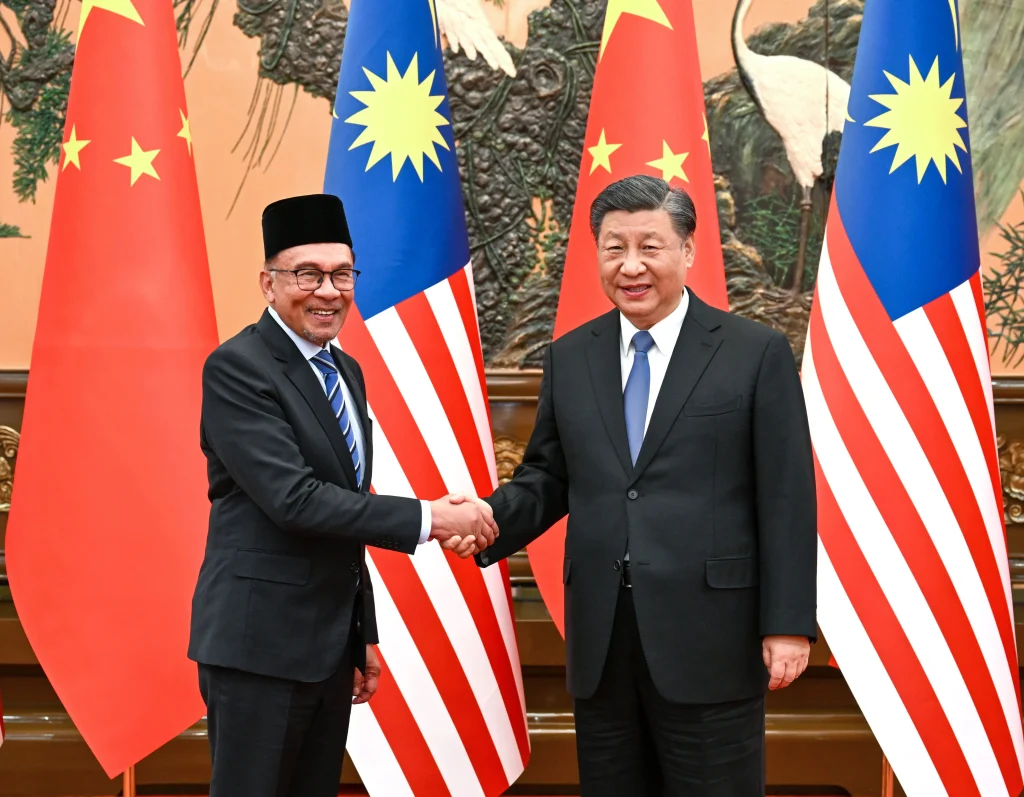
One of the most compelling reasons why Malaysia has become a top destination for Chinese property buyers is its remarkable geographical advantages. Situated at the heart of Southeast Asia, Malaysia boasts a strategic location along the Strait of Malacca, which serves as a crucial sea route connecting the Far East to Asia, Europe, and beyond.
Additionally, Malaysia’s strong international connectivity through well-developed transport infrastructure enables efficient cross-border collaboration and trade routes, making it an attractive location for selling properties.
For example, China has been actively investing in various Malaysian projects such as ports, highways, and railways with an aim to enhance intercontinental trade relations while boosting economic growth within key corridors like The Belt and Road Initiative (BRI).
Transportation And Logistics Links To Other ASEAN Countries And Beyond
Malaysia’s strategic location and connectivity are crucial factors in unlocking the country’s potential as an attractive investment destination for Chinese real estate investors.
Malaysia’s logistics industry is growing due to increasing demand from manufacturing sectors like electronics, automotive, and telecommunications.
The country has been developing transportation networks like Kuala Lumpur International Airport and Port Klang to accommodate this growth.
Malaysia’s well-connected road systems also make it convenient to transport goods over land borders to neighboring ASEAN countries.
The country’s advantages in supply chain management and simplified trade procedures, along with ASEAN integration initiatives, have made it attractive for multinational corporations seeking to expand or optimize their operations.
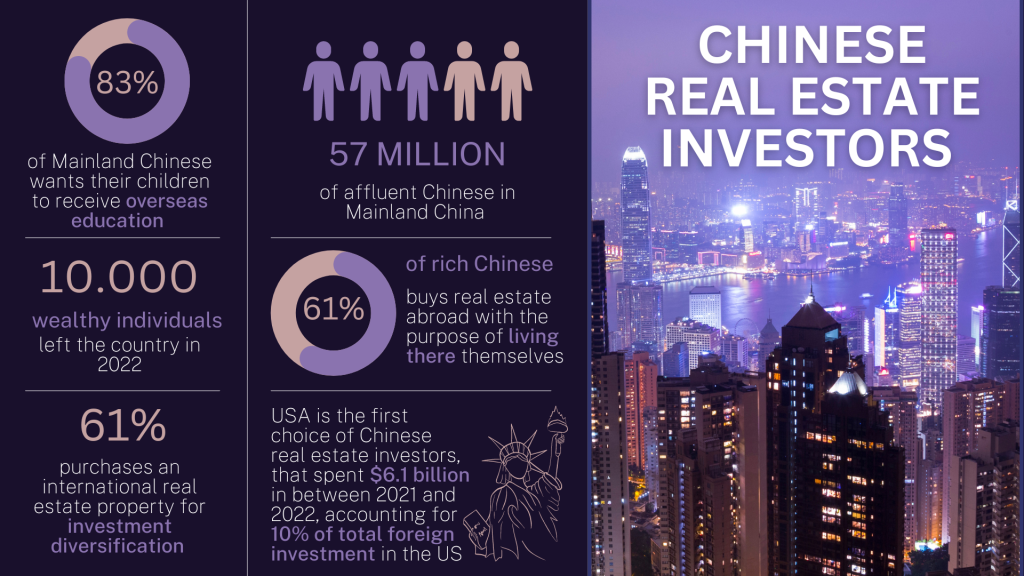
Why Malaysia Is A Top Destination For Chinese Investors: Favorable Government Policies And Incentives
Malaysia’s government policies and incentives for foreign investors are some of the most attractive in Southeast Asia, with specific tax breaks and bilateral trade agreements making it an accessible market.
Specific Incentives And Tax Breaks For Foreign Investors
Malaysia offers tax incentives to foreign potential investors to encourage them to issue Islamic bonds and financial instruments in the country.
Additionally, there are talks of extending new tax incentives for foreign investment in areas such as technology if companies promise to create better-paid jobs.
These incentives are not only beneficial for investors but also help boost economic growth and job creation in Malaysia. China also offers tax incentives which can be used as a legitimate tool for reasonable tax planning and cost savings for potential Chinese buyers.
Bilateral Trade Agreements
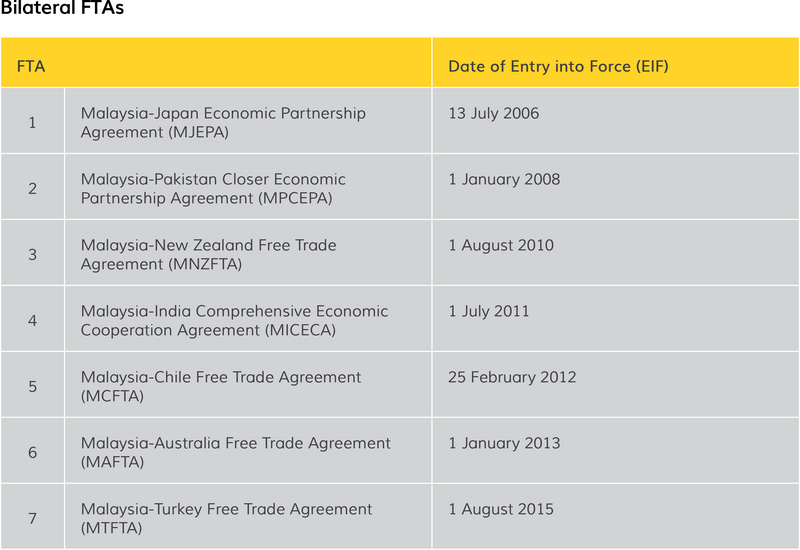
Malaysia has seven bilateral Free Trade Agreements (FTAs) with countries such as Australia, Chile, India, Japan, New Zealand, and more.
These agreements provide benefits for businesses by granting easier access to foreign markets for exports of primary commodities, manufactured products, and services.
They also help create jobs and foster economic growth through increased market access, leading to income generation opportunities for locals while boosting emerging industries’ efficiency.
Why Malaysia Is A Top Destination For Chinese Investors: Stable Political And Economic Climate
Malaysia’s stable political and economic climate provides a positive investment environment for Chinese investors, with promising growth prospects and transparent policies.
Economic Stability And Growth Outlook
Malaysia is considered a popular choice among wealthy Chinese investors, partly due to its stable economy and positive growth prospects.
Malaysia has experienced impressive economic growth in recent years due to exports and a favorable business climate.
Although other East Asian countries have seen higher growth rates, Malaysia’s consistent performance makes it an attractive investment destination for China.
Additionally, China’s economy grew by 3% in 2022, with investments and exports driving the expansion.

Political Stability And Transparency
Malaysia’s stable politics and transparent policies have helped to attract Chinese consumers and foreign investors.
The country has enjoyed political stability since gaining independence, which has created a favorable environment for business growth and investment.
Additionally, Malaysia’s policies on taxation and foreign direct investment provide a clear framework for businesses to operate within the country.
Sector-Specific Investments By Chinese Companies In Malaysia: Real Estate Development And Infrastructure Projects
Chinese companies have invested heavily in Malaysia’s real estate and infrastructure sectors, with key projects such as the Forest City development and East Coast Rail Link.
Discover how these investments are impacting Malaysia’s economic growth and why they continue to attract Chinese investors.
Key Projects, Investors, And Impacts
Chinese investment in Malaysia has had a significant impact on real estate and infrastructure development, with the China Communications Construction Company investing around US$10 billion in industrial parks and logistics hubs along the East Coast Rail Link.
Additionally, Chinese companies are making big investments in the manufacturing and technology sectors, with Huawei Technologies Co Ltd planning to invest up to US$1 billion in a regional center for innovation in Kuala Lumpur, and Alibaba Group Holding setting up a digital free trade zone near the Kuala Lumpur International Airport.
These developments allow potential investors to take advantage of Malaysia’s growing economy and expanding infrastructure.
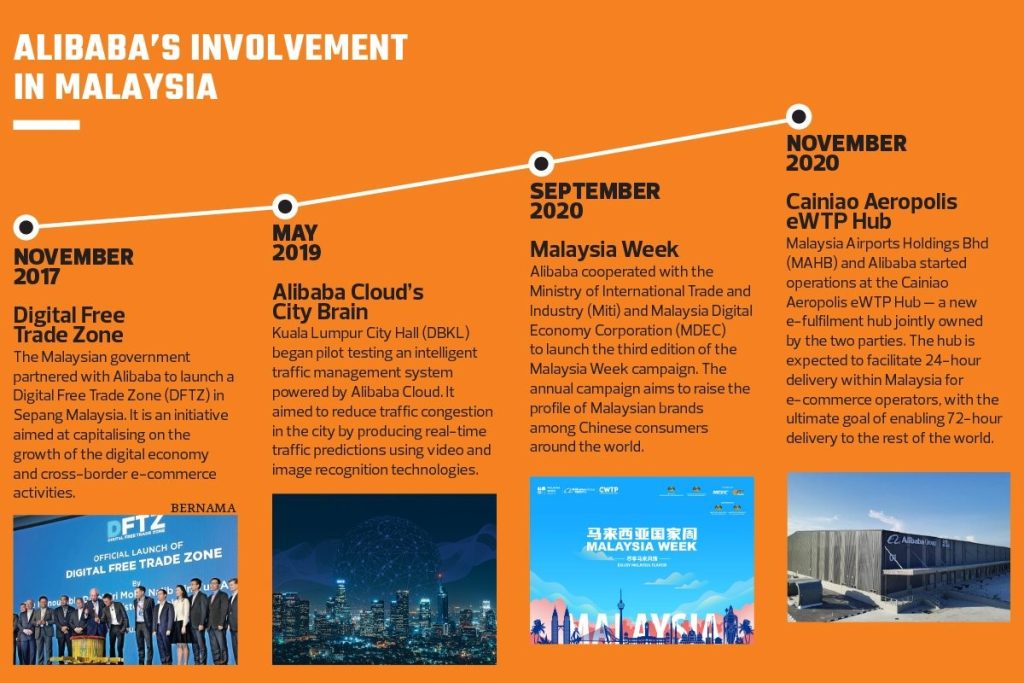
Sector-Specific Investments By Chinese Companies In Malaysia: Manufacturing And Technology Investments
Chinese companies have been investing significantly in Malaysia’s manufacturing and technology sectors, particularly in electronics, automotive, and telecommunications.
Key Sectors Of Investment (e.g., Electronics, Automotive, Telecommunications)
Chinese investment firm have also made significant investments in the electrical and electronics industry in Malaysia through partnerships and collaborations with Malaysian firms.
Malaysia’s robust telecommunications infrastructure is also driving interest from Chinese technology firms and investment firms looking to expand their presence in the region.
Taiwan’s electronics firms have previously invested preferentially in Malaysia and Thailand due to favorable government policies and incentives.
Role Of Chinese Investments In Malaysia’s Digital Economy
Chinese investors have made significant investments in Malaysia’s digital economy as part of the Belt and Road Initiative.
Malaysian tech companies have received more investment from Chinese companies, which are also helping to scale local startups by providing access to new markets, technology transfer, and best practices.
Alibaba’s Ant Financial has purchased shares in Touch ‘n Go Sdn Bhd to expand across Southeast Asia.
Sector-Specific Investments By Chinese Companies In Malaysia: Investment In The Energy Sector
Chinese companies have participated in renewable energy projects and invested significantly in the oil and gas industry in Malaysia.
Participation In Renewable Energy Projects
Chinese companies are increasingly interested in overseas investment opportunities, particularly in Malaysia’s renewable energy sector.
Malaysia’s favorable energy policies and large Chinese community make it an attractive destination for Chinese investors, with solar power plants being a particularly popular area of investment.
Other clean energy projects such as wind, hydro, and geothermal power are also drawing Chinese investment in Malaysia’s growing market.
Oil And Gas Sector Involvement
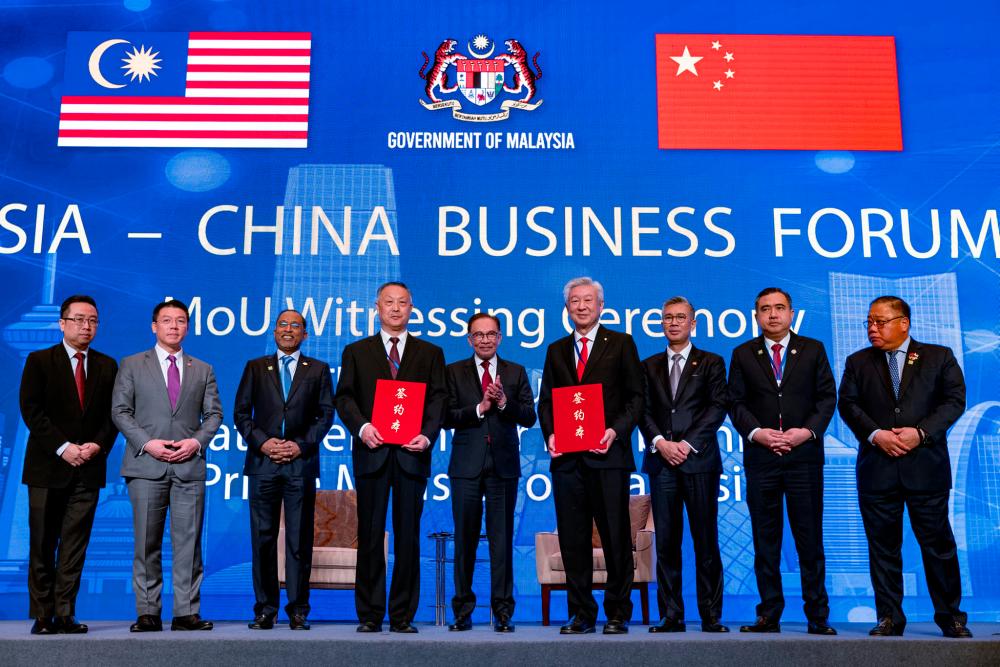
One of the key areas where Chinese investors have made significant investments in Malaysia is in the energy sector, particularly in oil and gas.
In recent years, new opportunities for investment have attracted both foreign oil independents and national oil companies to Malaysia’s robust and established oil and gas industry.
These investments are crucial to support continued growth and development in this important economic sector.
Future Prospects Of Chinese Investment In Malaysia
Chinese investment in Malaysia’s property market shows promising potential as real estate demand increases. With favorable government policies and incentives, investors should keep an eye on emerging sectors such as e-commerce and green energy projects.
Property Investment
Chinese investors consider property investment as one of the main reasons why Malaysia is an attractive investment destination. The Malaysian real estate sector has seen a rise since 2019, and Chinese investors have played a significant role in this growth.
In fact, the Chinese market has recently overtaken Singapore to become the top foreign investor in Malaysian real estate. With government policies that welcome foreign buyers and incentives such as tax breaks for developers, it’s no wonder that Malaysia is drawing significant attention from Chinese companies seeking to invest in high-end residential and commercial properties.
An example of an ambitious Chinese FDI project is Forest City conducted by Country Garden Pacific View, which made headlines worldwide as a game-changing development with world-class facilities at scale.
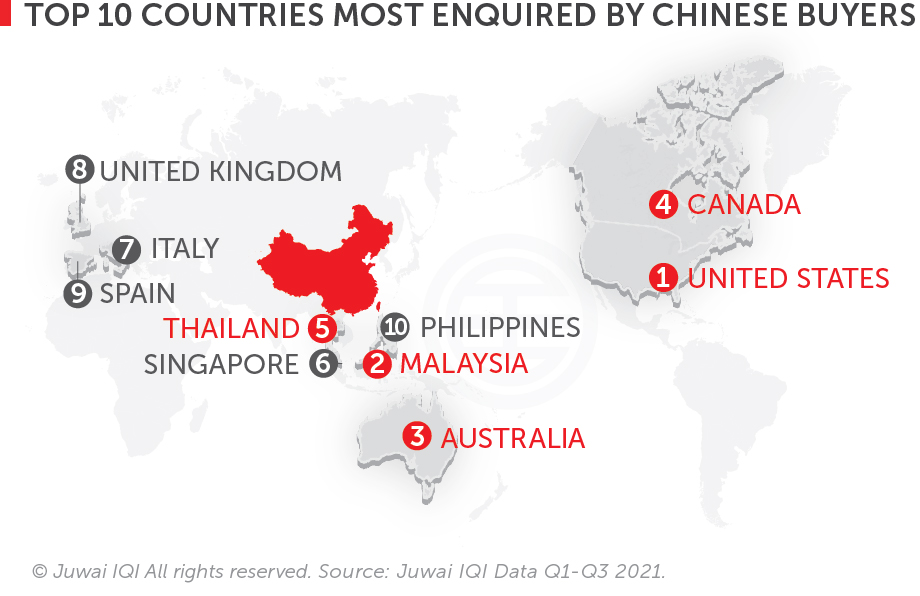
Promising Potential To Attract Foreign Investment
The promising potential of Malaysia to attract foreign investment in the foreign exchange market is due to government policies that create an attractive environment for businesses looking to expand internationally.
Malaysia provides specific incentives and tax breaks for foreign investors, such as allowing foreign ownership of companies in certain industries and granting duty-free importation of equipment and raw materials.
Additionally, there are several free trade zones around Malaysia to promote international trade and business expansion, making it easier than ever before for companies from all over the world to invest in Malaysia’s growing economy.
Rise In Demand For High-end Residential And Commercial Properties
The Malaysian real estate market has seen a surge in demand for high-end residential and commercial properties, especially from Chinese investors who have been heavily investing in luxury properties throughout the country.
This trend is further fueled by Malaysia’s pro-trade and investment policies, making it an attractive destination for foreign property buyers seeking quality retail assets and investment in real estate.
Favorable Government Policies To Attract Foreign Investors
Malaysia has implemented favorable government policies and incentives to attract foreign investors, including those from China.
The federal government has liberalized most economic activities and offers fiscal incentives to global investors.
Malaysia’s Investment Development Authority (MIDA) provides assistance in obtaining approvals and licenses for investment projects and offers information on specific incentives available for companies investing in priority sectors like green technology and E-commerce. The country welcomes investment from the Chinese.
In addition to these broader initiatives, the Malaysian Government has also taken sector-specific measures to support foreign investment in areas such as renewable energy, high-end manufacturing, and real estate investment.
Attracting FDI not only helps link a country’s economy with global value chains but also spurs domestic industry development.
Prospects In Emerging Sectors
In addition to the already established investment sectors, Malaysia is also showing great potential for emerging sectors that are attracting Chinese real estate developer. One of these sectors is the digital economy, which has been growing rapidly in recent years with government support and favorable policies.
Malaysia aims to generate 20% of its energy from renewable sources by 2025, making it attractive for Chinese companies investing in green energy and sustainability projects.
E-commerce And Digital Economy
The digital economy in Malaysia is experiencing significant growth, particularly in the e-commerce sector, which has seen a 68% increase in 2021.
The government’s focus on developing the digital economy has attracted foreign investors and led to increased demand for high-end properties as more tech companies set up shop in the country.
To reach investors from mainland China, it’s critical to cater to their specific preferences and customs. Using social media platforms like WeChat and Weibo, and consider hiring a local marketing agency to help you reach the right audience. Also using other Chinese social media like Xiaohongshu, and Douyin (the Chinese version of Tik Tok) is crucial.

Green Energy And Sustainability Projects
Chinese government is committed to securing sustainable energy sources in line with the Paris Agreement, and Malaysia aims to generate 20% of its electricity from renewable sources by 2025.
The Belt and Road Initiative also plans to develop green energy projects across economic corridors, such as solar, wind, and hydro power.
Malaysia can achieve its net zero goal by using local and affordable renewables, and investing in green energy and sustainability initiatives could offer promising prospects for foreign investors.
The government has favorable policies to attract clean tech development, and investing in such initiatives can generate significant returns and contribute towards achieving sustainability goals. This aligns with existing bilateral agreements and global commitments like the Paris Agreement.
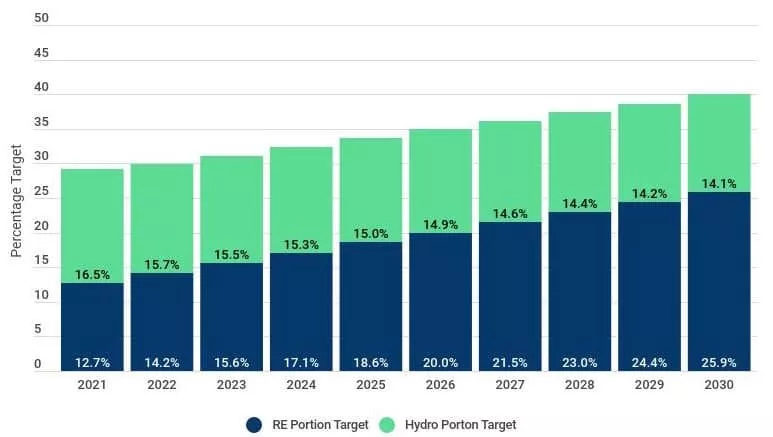
We are your local partner in China!
Malaysia’s strategic location in Southeast Asia, favorable government policies and incentives, stable political and economic climate, and promising investment prospects in emerging sectors make it a top destination for Chinese investors.
As the Malaysian government continues to attract foreign investment through various initiatives and projects, there are ample opportunities for Chinese companies to participate in the growth of this dynamic economy.

We are a China-based marketing agency offering cost-effective solutions to foreign brands interested in tapping into the Chinese market. Our team of Chinese and foreign experts has the experience and know-how needed to succeed in this lucrative, yet complicated market.
Gentlemen Marketing Agency offers many digital marketing and e-commerce solutions, such as web design, e-commerce and social media marketing strategies, localization, market research, KOL marketing, and more.
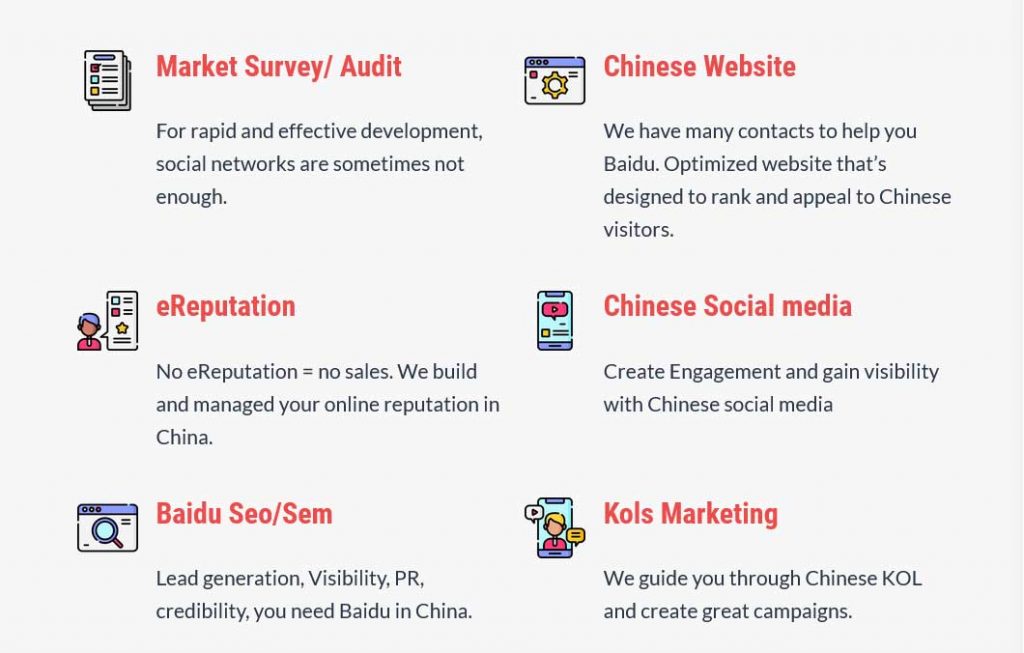
Don’t hesitate to leave us a comment or contact us, so that we can schedule a free consultation with one of our experts, that will learn about your brand and present you the best solutions for your China market strategy.







